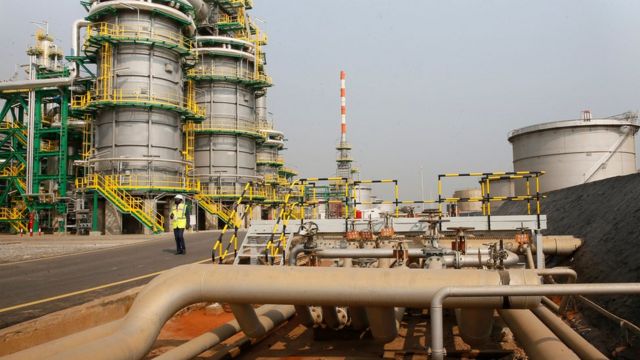Angola exits OPEC amidst output Quota disputes and oil price fallout

In a notable development, Angola has officially announced its departure from the Organization of the Petroleum Exporting Countries (OPEC) due to disagreements over output quotas. This decision comes on the heels of OPEC’s recent agreement, along with 10 allied nations, to further reduce oil production in 2024 with the aim of stabilizing volatile global prices. The move has already had a tangible impact on oil prices, causing Brent prices to dip over $1 to $78.5 a barrel
The announcement was made during Thursday’s cabinet meeting, with Mineral Resources and Petroleum Minister Diamantino Azevedo explaining that Angola perceives no benefit in continuing its OPEC membership.
Azevedo emphasized that remaining in OPEC would compel Angola to cut production, contradicting the nation’s policy of avoiding decline and honoring contracts.
Angola and Nigeria, the two largest oil exporters in sub-Saharan Africa, have expressed discontent over being asked to reduce production when they aim to boost foreign currency earnings.
Despite being home to significant mineral and petroleum reserves, Angola’s economic growth is uneven, with much of its oil wealth concentrated in the Cabinda province, marred by a longstanding separatist conflict.
Having been an OPEC member for 16 years, Angola joins the ranks of countries like Ecuador, Indonesia, and Qatar that have exited the cartel.
OPEC, responsible for determining global crude oil sales, operates in conjunction with an extended group known as OPEC+.
Oil prices experienced a surge following Russia’s invasion of Ukraine in February 2022, reaching over $120 a barrel in June of the same year.
Although prices temporarily dropped to just above $70 a barrel in May 2023, they have been steadily rising as producers attempt to limit output to support the market, especially in the aftermath of recent attacks on cargo vessels in the Red Sea.
Source: bbc.com











